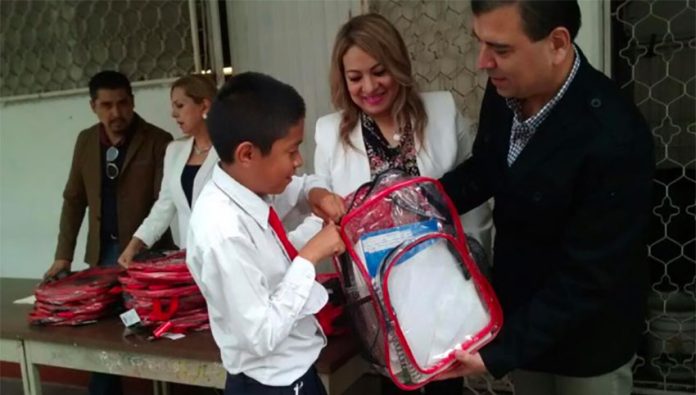The first big school shooting — Columbine — happened in 1999, the year I was a senior in high school. It was blamed on all manner of things: Marilyn Manson, violent video games, absent or clueless parents, the lack of mental healthcare.
Notably, many scoffed at the idea that the prevalence of guns might be even partly to blame, or that the country’s own habit of killing its enemies might influence people’s feelings of justification for violence.
Learning about a school shooting is always sad, but it’s especially shocking when it happens where you don’t expect it: not just a school in Mexico, but a private school in Mexico.
I’ll expose my own prejudice here and admit that I was especially surprised that this took place at a private school made up of mostly well-off students. I think many would have expected something like this at a public school, a place, perhaps, with more seemingly “troubled” students.
But wealth and privilege don’t necessarily buy mental health, and sometimes the combination of above-average access to all manner of resources and freedom with private suffering can lead to tragedy.
I’m familiar with this kind of school: I worked at one for five years. The students were mostly the children of successful business people, industry leaders and politicians. My first year there, I had a student that I liked a lot but who, some days, seemed visibly troubled. He was bigger than most of his classmates, and stranger, and was no doubt picked on away from the eyes of the teachers.
One day as I was circling the room, I saw him showing a hammer in his backpack to another student. He then took it out and pretended to hit someone with it. I told him to put it away and notified the administration and the on-site psychologists, who called his parents right away. It wasn’t a gun, but it very well might have been a weapon.
I’ve written here about guns before, and reflected on how strange it was that with such violence in the country, there was such a shortage of American-style mass shootings. I hypothesized that the generally higher sense of social cohesion in Mexico might be partly to thank.
I don’t think there’s any one cause to what happened. I don’t think it was video games. I don’t think it was an admiring emulation of the country’s narcos. This kid had obviously been suffering, and needed help, and didn’t get it when he needed it.
I don’t blame his caretakers (with the information we have so far, at least) or the school. Indeed, we still don’t know a lot about his young life. But I do believe we should take this as a wakeup call, not just for ensuring that weapons don’t make their way into our schools, but that all children know they have a trusted adult they can turn to in the places where they spend most of their time.
I also don’t think “technology” is the cause, but I do believe that a growing obsession (along with the rest of the world) with personalized, single-user devices has made some of that social and civic cohesion that Mexico is famous for — that way of paying close attention to each other — fade. It’s not that we mean to ignore each other, least of all our children; it’s that these now essential devices are very specifically designed to demand our attention as much as possible.
There’s a reason that so many tech executives send their children to luddite schools and keep hand-held screens out of their homes and their children’s pockets.
Paying attention to people is hard, and sometimes boring, and increasingly awkward as we become more accustomed to interacting with typed words and emojis instead.
We don’t know a lot about this child. We know that he seemed to be fine on the surface. We know that he lived with his grandparents, having lost his mother a few years earlier. Strangely, nothing has really been said about the father, who presumably was absent from the start.
Would anything have been able to stop it? Certainly the backpack checks on the way into school that were rejected earlier in the school year would have, but that doesn’t get to the root of the problem. What was this child going through? Would anything have been able to help him as an individual? How many others like him are there?
The truth is that mental illness is easy enough to keep secret, especially in our distracted world. We need to make sure that every child has an adult that they can count on.
Mass shootings aren’t easy to predict, but the need for emotional and mental support is.
Sarah DeVries writes from her home in Xalapa, Veracruz.
